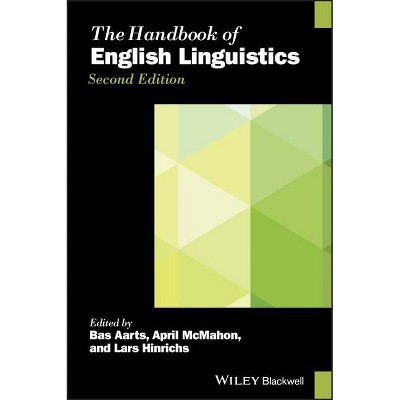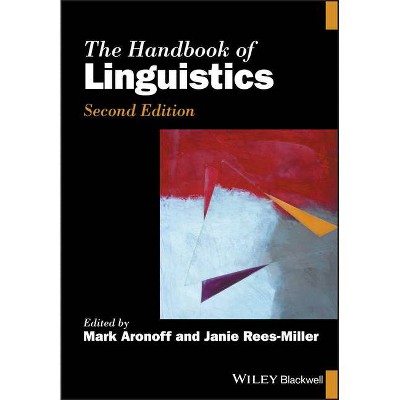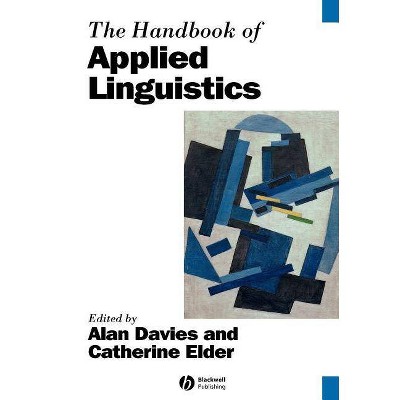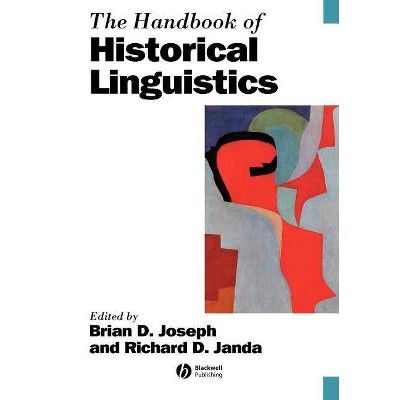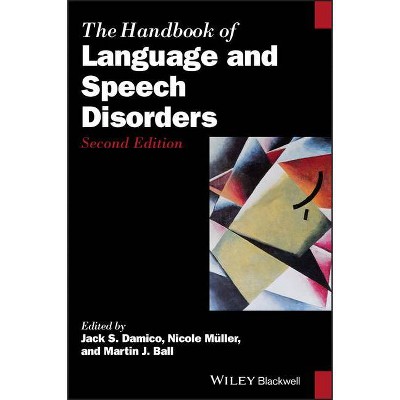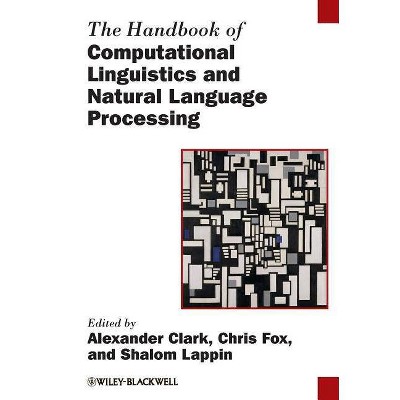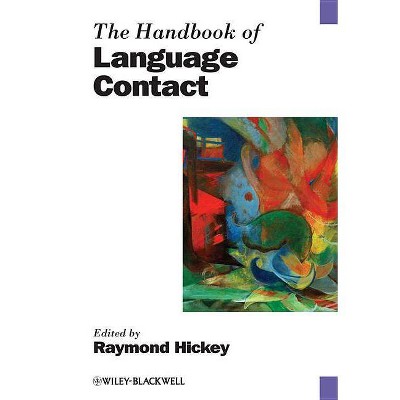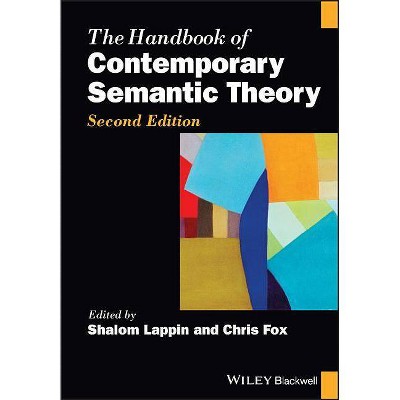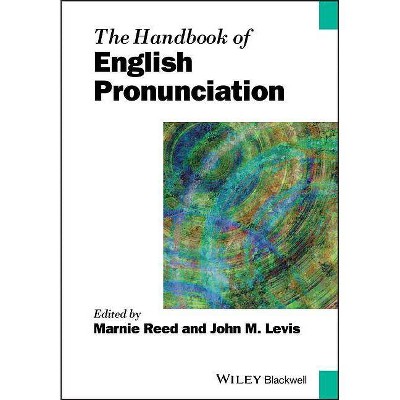The Handbook of Speech Perception, 2nd Edition - (Blackwell Handbooks in Linguistics) by Jennifer S Pardo (Hardcover)
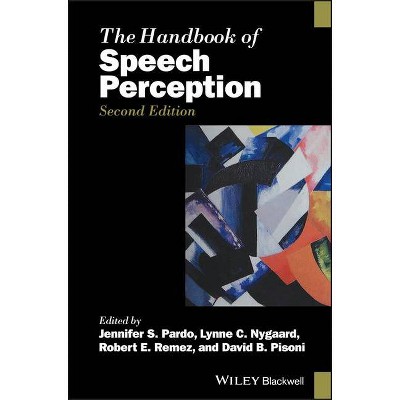
Similar Products
Products of same category from the store
AllProduct info
<p/><br></br><p><b> Book Synopsis </b></p></br></br><p><b>A wide-ranging and authoritative volume exploring contemporary perceptual research on speech, updated with new original essays by leading researchers</b></p> <p>Speech perception is a dynamic area of study that encompasses a wide variety of disciplines, including cognitive neuroscience, phonetics, linguistics, physiology and biophysics, auditory and speech science, and experimental psychology. <i>The Handbook of Speech Perception</i>, Second Edition, is a comprehensive and up-to-date survey of technical and theoretical developments in perceptual research on human speech. Offering a variety of perspectives on the perception of spoken language, this volume provides original essays by leading researchers on the major issues and most recent findings in the field. Each chapter provides an informed and critical survey, including a summary of current research and debate, clear examples and research findings, and discussion of anticipated advances and potential research directions. The timely second edition of this valuable resource: </p> <ul> <li>Discusses a uniquely broad range of both foundational and emerging issues in the field</li> <li>Surveys the major areas of the field of human speech perception</li> <li>Features newly commissioned essays on the relation between speech perception and reading, features in speech perception and lexical access, perceptual identification of individual talkers, and perceptual learning of accented speech</li> <li>Includes essential revisions of many chapters original to the first edition</li> <li>Offers critical introductions to recent research literature and leading field developments</li> <li>Encourages the development of multidisciplinary research on speech perception</li> <li>Provides readers with clear understanding of the aims, methods, challenges, and prospects for advances in the field</li> </ul> <p><i>The Handbook of Speech Perception</i>, Second Edition, is ideal for both specialists and non-specialists throughout the research community looking for a comprehensive view of the latest technical and theoretical accomplishments in the field.</p><p/><br></br><p><b> From the Back Cover </b></p></br></br><p>Speech perception is a dynamic area of study that encompasses a wide variety of disciplines, including cognitive neuroscience, phonetics, linguistics, physiology and biophysics, auditory and speech science, and experimental psychology. <i>The Handbook of Speech Perception, Second Edition</i>, is a comprehensive and up-to-date survey of technical and theoretical developments in perceptual research on human speech. Offering a variety of perspectives on the perception of spoken language, this volume brings together original essays by leading researchers on the major issues and most recent findings in the field. <p>The second edition features revisions of chapters original to the first edition as well as newly commissioned essays on topics including the relation between speech perception and reading, features in speech perception and lexical access, perceptual identification of individual talkers, and perceptual learning of accented speech. Each chapter provides an informed and critical survey, including a summary of current research and debate, clear examples and research findings, and discussion of anticipated advances and potential research directions. <p>Offering critical introductions to recent research literature and leading field developments, <i>The Handbook of Speech Perception, Second Edition</i>, provides readers with a clear understanding of the aims, methods, challenges, and prospects for advances in the field. This handbook is ideal for both specialists and non-specialists throughout the research community looking for a comprehensive view of the latest technical and theoretical accomplishments in the field as well as those interested in the development of multidisciplinary research on speech perception.<p/><br></br><p><b> Review Quotes </b></p></br></br><br>Linguist List - copy sent Sept 2021<br><p/><br></br><p><b> About the Author </b></p></br></br><p><b>Jennifer S. Pardo</b> is Professor of Psychology and Director of the Speech Communication Laboratory at Montclair State University, USA. Her research on the production and perception of spoken language in conversational interaction and on understanding variation and convergence in phonetic form has appeared in <i>Journal of Memory and Language, Journal of Phonetics</i>, and <i>Language and Speech</i>.</p> <p><b>Lynne C. Nygaard</b> is Professor of Psychology and Director of the Center for Mind, Brain, and Culture, and the Speech and Language Communication Laboratory at Emory University, USA. Her research on the perceptual, cognitive, biological, and social underpinnings of human spoken communication has appeared in many journals, including <i>Psychological Science, Brain and Language</i>, and <i>Cognitive Science</i>.</p> <p><b>Robert E. Remez</b> is Professor of Psychology at Barnard College, Columbia University, USA, and Chair of the Columbia University Seminar on Language and Cognition. His research has been published in many scientific and technical journals, including <i>American Psychologist, Developmental Psychology, Ear and Hearing, Experimental Aging Research, Journal of Cognitive Neuroscience</i>, and <i>Journal of Experimental Psychology</i>.</p> <p><b>David B. Pisoni</b> is Distinguished Professor of Psychological and Brain Sciences and Chancellor's Professor of Cognitive Science at Indiana University, Bloomington, USA, and Professor in the Department of Otolaryngology at Indiana University School of Medicine, Indianapolis, USA. He has made significant contributions in basic, applied, and clinical research in areas of speech perception, production, synthesis, and spoken language processing.</p>
Price History
Price Archive shows prices from various stores, lets you see history and find the cheapest. There is no actual sale on the website. For all support, inquiry and suggestion messagescommunication@pricearchive.us

